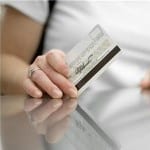
What assets am I allowed to keep when Bankrupt?
The property exempt from seizure is set by the provinces and territories as follows. In Ontario, the following assets are exempt and cannot be seized by a trustee:
1. Household Furniture valued to a maximum of $11,300.00
2. Person Possessions (clothing etc.) to a maximum value of $5,650.00
3. Tools of Trade to a maximum value of $11,300.00
4. A car or truck to a maximum value of $5,650.00
5. Certain life insurance policies and pensions
6. Farmers tools to a maximum of $28,300.00
Please note that if you are self-employed your car or truck can sometimes also be considered as a Tool of Trade, which increases their exemption from $5,650.00 to $11,300.00. It is also possible to keep two vehicles – the first vehicle exempt, as a personal vehicle, the second exempt as a business vehicle.
Contact Rumanek & Company Ltd. for more information on bankruptcy in Ontario and debt solutions. Please fill out the bankruptcy evaluation form. To learn more please visit our YouTube Channel. Rumanek & Company have been helping individuals and families overcome debt for more than 25 years.



